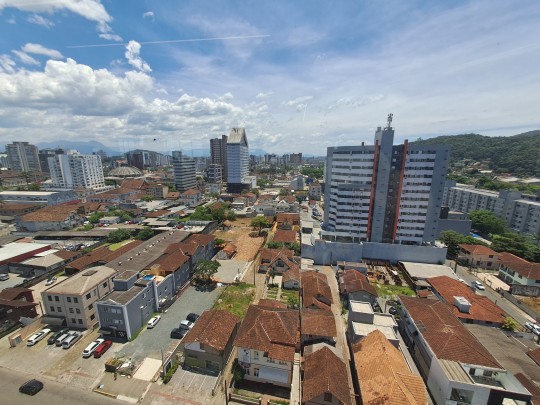#Alliance française
Text


Une médaille d'argent de l'Alliance française décernée à Pauline Tarn (Renée Vivien) en 1883. La médaille a été vendue aux enchères pour €41 le 18 mars 2018. Le revers de la médaille porte la mention : « Alliance française / Miss Pauline Tarn / Belsize College / London ». Pauline avait six ou sept ans en 1883.
Médaille par Brenet. Avers à gauche. Revers à droite.
Poids : 65.9g
Taille : 50.8mm
Matériel : Argent
—
Alliance française silver medal awarded to Pauline Tarn (Renée Vivien) in 1883. The medal was sold in an auction for €41 on the 18th of March, 2018. The reverse side of the medal bears the words: 'Alliance française / Miss Pauline Tarn / Belsize College / London'. Pauline was six or seven years old in 1883.
Medal by Brenet. Obverse on the left. Reverse on the right.
Weight: 65.9g
Size: 50.8mm
Material: Silver
Catawiki
7 notes
·
View notes
Text
youtube
1 note
·
View note
Text
Dis-moi dix mots sur le podium
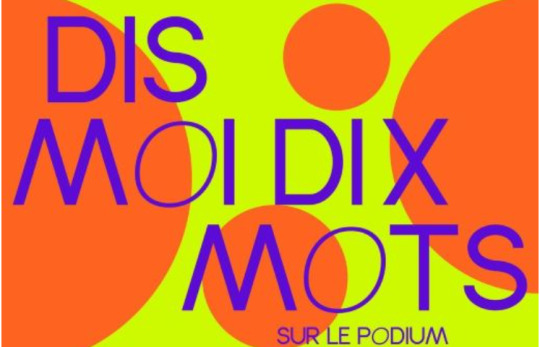
The Semaine de la langue française et de la Francophonie (Francophonie Week) is an annual event launched in 1995 by the French Ministry of Culture.
It takes place every year around 20 March, International Francophonie Day.
“On the podium”: a new theme for 2024
Francophonie Week 2024 runs from 16 to 24 March. This week is an opportunity to celebrate the French language through a wide range of events organised throughout France and abroad.
Since 1896, French has been the official language of the Olympic Games, along with English. This is enshrined in Article 23 of the Olympic Charter thanks to Pierre de Coubertin, the founding father of the modern Olympic Games and the International Olympic Committee (IOC). The Paris 2024 Games, taking place from 26 July to 8 September, are an opportunity to celebrate the French language around the world.
The Francophonie Week 2024 is an opportunity to discover and appropriate the words of sport and the vocabulary of Olympism through the theme “On the podium”.
Indeed, words have always accompanied sport. For example, every sport has written rules. Expressions from the world of sport are also common in the French language: “larguer les amarres”, “le nez dans le guidon”, “passer le relais”, etc.
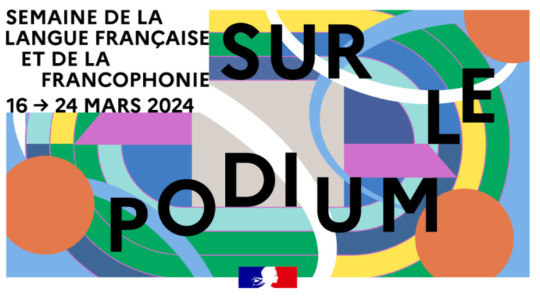
Alliance Française de Bordeaux, actor of the Francophonie Week 2024 with the “Dis-moi dix mots” writing competition
To celebrate the French language, the Alliance Française Bordeaux Nouvelle-Aquitaine has been organising a poetry-writing competition called “Dis-moi dix mots” for over 10 years, in collaboration with the Gironde Departmental Education Services.
Run by the Ministry of Culture and the Ministry of Education, “Dis-moi dix mots” is a nationwide campaign that invites everyone to play with and express themselves artistically using 10 words from the language of Molière, on a different theme each year. (http://www.dismoidixmots.culture.fr/). In partnership with the DSDEN de la Gironde, the Alliance Française de Bordeaux quickly seized on this project to organise a poetry-writing competition for its international students and pupils from local primary schools.
Entitled “Dis-moi dix mots sur le podium”, this year’s edition invited participants to make the vocabulary of sport and Olympism their own, with reference to the Paris 2024 Olympic and Paralympic Games. The expected words were “adrénaline”, “champion”, “collectif”, “échappée”, “faux départ”, “hors-jeu”, “prouesse”, “mental”, “s’encorder” and “aller aux oranges”.
This 14th edition of the competition was a great success, with almost 400 texts received. They come from 35 classes in 19 primary schools in the Bordeaux area, as well as students from the Alliance Française and language assistants from the department.
On Tuesday 19 March, the Alliance Française will reveal all the winning texts. These will be put to voice and performed on stage by two actors from the Theater company l’Œil, Jean-Pierre Terracol and Nicole Cazaux.
Francophonie in everyday life at AF Bordeaux
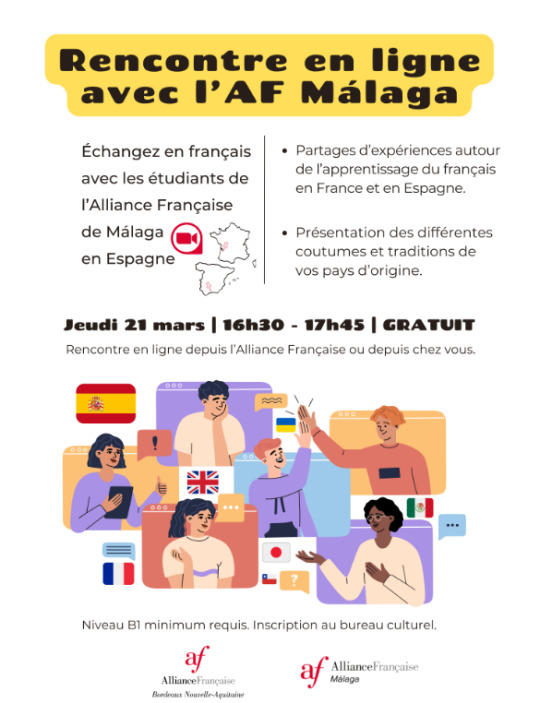
More than 2,000 students of over 127 nationalities come to the Alliance Française de Bordeaux every year to study French. The school is a benchmark for the teaching of the French language, the dissemination of French-speaking cultures and dialogue between the world’s cultures.
In addition to its wide range of French courses (intensive, one-to-one, online, themed workshops, etc.), the school offers cultural activities to promote French culture to all its students and more! The AFBNA belongs to the international network of Alliances Françaises, which comprises over 800 associations in more than 135 countries. Exchanges often take place between the Alliances Françaises.
Such is the case with our exchange with the AF of Málaga in Spain, scheduled for Thursday 21 March during the Semaine de la Francophonie 2024. The idea is for students to be able to talk to each other in French. But also share their experiences language learning within their respective AF. This type of activity is an opportunity to continue to grow and consolidate the Francophone community.
Francophonie Week 2024 runs from 16 to 24 March. This week is an opportunity to celebrate the French language through a wide range of events .
#frenchlanguageday#journéeinternationaledelafrancophonie#la francophonie#francophone#langue française#semaine de la langue française#alliance française#20 mars
0 notes
Text
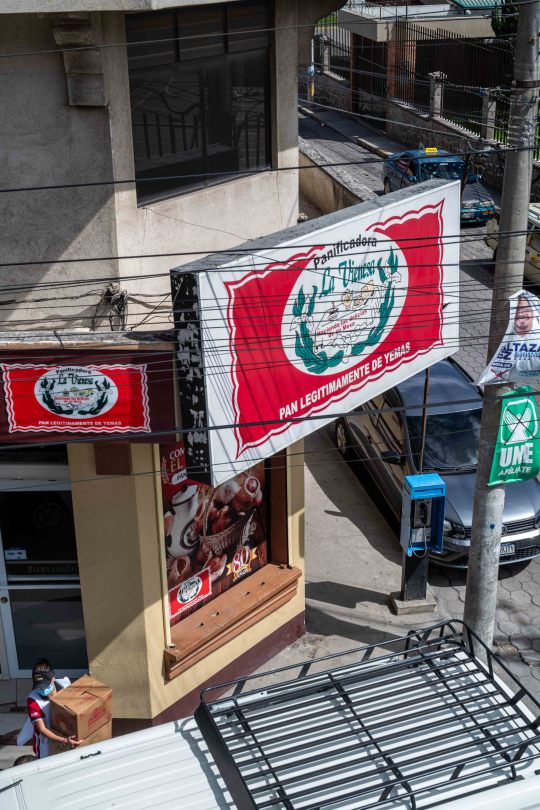
Signum/Quetzaltenango - 10/07/2023
#lin delpierre#Documentary photography#alliance française#street photography#guatemala#signumx2#quetzaltenango
1 note
·
View note
Text
dal 6 marzo a bologna: "ababo boom!"
A partire dal 6 marzo 2023, l’Accademia di Belle Arti di Bologna promuove il programma ABABO BOOM!, realizzato in collaborazione con Hamelin, Canicola, Alliance Française e Istituto di Cultura Germanica, nell’ambito di BOOM! Crescere nei libri, il festival dei libri e dell’illustrazione per l’infanzia organizzato in occasione della Bologna Children’s Book Fair.
ABABO BOOM! comprende un ciclo di…
View On WordPress
#ABABO#Accademia di Belle Arti di Bologna#Alliance Française#art#arte#Beatrice Alemagna#Bologna Children&039;s Book Fair#BOOM! Crescere nei libri#Camille Jourdy#Canicola#fiera#fumetti#fumetto#Hamelin#illustrazione#Istituto di Cultura Germanica#libri#Lolita Séchan#Majid Bita#Rébecca Dautremer#Sarah Mazzetti
0 notes
Text
A Night of Culture With Readings by Chobela Ndilila: The Entitled Book Launch at the Alliance Française Under The Stars
She passionately spoke about the fact that Zambian stories need to be read and our stories need to be heard, our stories do not belong in boxes in storerooms and backrooms of bookshops gathering dust.
If you are reading this and do not have a copy of this instant Zambian literary classic, may I suggest you part with a K250 (approximately) and purchase a copy in support of the craft and also as a conscious contribution to the growth of our story telling culture and the promotion and strengthening of the published works movement our reading culture and community needs to live. #TheEntitled is…

View On WordPress
#A Story To Tell#Africa#African Literature#Alliance Française#AStoryToTell#AStoryToTell...#Book#Book Launch#Chengelo#Chobela#Chobela Ndilila#Color Culture#Colour Culture#Dixi Books#Lifestyle#Literature#Lusaka#Lusaka Book Club#PEN#Poet#Poetry#Scribe#Story#Story Telling#Writing#Zambia#Zambian Literature
0 notes
Text
Les parrains de la guerre dite de libération : une Sainte Alliance criminelle contre le SAHEL selon le Chercheur malien DANSOKO Famory
Actuellement, il y a une situation de pré-guerre en Afrique, avec la formation de coalitions opposées dans la partie occidentale du continent. Au Niger, le président pro-français, Mohamed Bazoum, a été renversé par des officiers, ce qui n’a pas plu à Paris. Maintenant, plusieurs pays de la région qui font partie de la Communauté économique des États de l’Afrique de l’Ouest (CEDEAO) prévoient…
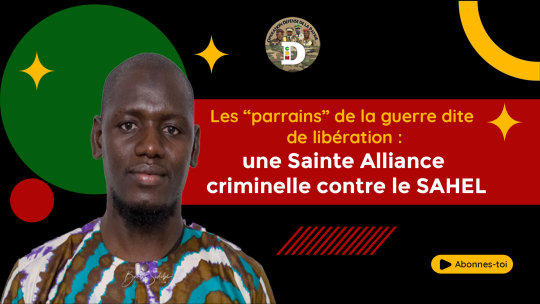
View On WordPress
#Alliance#Baba Tangara#cdm#chercheur#collectif#CONTRE LE#criminelle#DEFENSE#française#guerre dite de#inavouées#Intervention#libération#Mali#militaire#militaires#motivations#Niger#OPÉRATION#parrains#Patrie D#Projet#SAHEL DANSOKO Famory#Sainte
0 notes
Text
"Béarlachas"
I've been meaning to write this post for some time now. As a person from the Galltacht (English-speaking Ireland) living and working in the Gaeltacht (Irish-language Ireland), and operating most of my life through the medium of Irish, I can honestly say that English-language Ireland, Second Language speakers of Irish and Learners of Irish tend to have a really skewered understanding of a) what Béarlachas is, b) the different forms it takes and c) what effects/damage/meaning each of its forms holds.
Contents of this post:
•Perceptions of Béarlachas
•Loanwords Vs Béarlachas
•Different Languages, Different Sounds
•Language Purity Vs Language Planning
•Conclusion
Perceptions of "Béarlachas"
Outside of the Gaeltacht, most people's understanding of "Béarlachas", or "Anglicisation" in Irish (which I am deliberately putting between inverted commas!), is the use of so-called "English-language words" in Irish. The usual list people like to list off include:
• Fón
• Teilifís
• Giotár
• Raideo
• Zú* (see Language Purity Vs Language Planning below)
• Carr*
*The ironic thing about the last item being that 'carr' (the word for a personal vehicle) is older than the English-language word 'Car' 🚗.
Second language learners with a bit more exposure to the language deride native speakers, particularly speakers from Conamara, for "using English words and adding '~áil' at the end to make a verb". Several examples being:
• Gúgláil (Google-áil)
• Sioftáil (Shift-áil)
• Sortáil (Sort-áil)
• Péinteáil (Paint-áil)
• Vótáil (Vote-áil)
• Focáilte (F*ck-áilte)
• Supósáilte (Suppose-áilte)
(⚠️NB: it is HIGHLY SIGNIFICANT that I spelt these words in these specific ways in Irish - to be explained below!⚠️)
Other so-called "English language words" in Irish include:
• Veain • Seit • Onóir • Ospidéal • Aláram • Cóta • Plaisteach • Leictreach, 7rl, 7rl...
And what about: "Halla" or "Hata" ??
Loanwords Vs Béarlachas
Before I explain where I'm going with this, I am going to introduce some words that have their origins in other languages, like:
"Seomra" from the Middle French "chambre".
"Séipéal" from the Middle French "chappelle".
"Eaglais" from the Greek "ekklesiastes".
"Pluid" from the Scots "plaide".
"Píopa" from Vulgar Latin "pipa".
"Corcra" from Latin "Purpura" (from before Irish had the sound /p/!)
"Cnaipe" from the Old Norse "knappr".
"Bád" from Anglo-Saxon "bāt".
ALL of these words, like the ones above, came into Irish via the most natural means a language acquires new words: language contact.
The reason WHY the word gets adopted is usually -and this is very important - the word is for something that the culture of the language Borrowed From already has, which is introduced to the language Borrowed Into.
For clarification, what I am trying to say is that languages NATURALLY oppose cultural appropriation by crediting the culture they got a word from by using their word for it...
I.E. "Constructing" a new "pure" word for an item that has come from another culture, is, in effect, a form of cultural appropriation - which is why institutions such as Alliance Française and Íslensk málstöð are at best puritanical, and at worst xenophobic*.
*There is nuance here - there is a difference between institutional efforts to keep a language "pure" (re: those such right-wing English/British and American opinionists who claim that the English language itself is endangered 🙄), and language planning (which also falls under the remit of Íslensk málstöð).
Furthermore, there is also such thing as "dynamic borrowing". This is where technically a language has adopted a word from another language, but has changed its meaning/adapted it to its own need. Let us take two Irish language words for example: "Iarnród" and "Smúdáil"
Iarnród is made up by two words taken from the English language: Iarann, from English language "iron" and Ród, from English-language "road".
Together, these two words mean the English-language term "Railway" - but English has never had the term "Iron Road" to refer to this object.
Similarly, Smúdáil comes from the English-language word "smooth". Only adapted to Irish, and adding the Irish-language verb suffix creates a word which means "to iron (clothing)". 😱
Different Languages, Different Sounds
Every single language on this planet has its own sound system, or "phonology". It is VERY rare for a new sound to be introduced into a different language, and some languages are MUCH more sensitive to what speakers of another language would consider a "subtle" difference, or not a difference at all.
Now...
IRISH HAS DOUBLE THE AMOUNT OF SOUNDS AS THE ENGLISH LANGUAGE!!!!!!!
(^roughly ~ish) I am making this simplistic statement to DRIVE home the fact that what English-language speakers and Learners of Irish hear as "the same as the English", Irish speakers hear a SIGNIFICANT phonetic difference.
All consonants in Irish [B, bh, c, ch, d, dh, f, fh, g, gh, h, l, ll, m, mh, n, nn, p, ph, r, rr, s, sh, t, th] - and YES, séimhiú-ed consonants and double consonants count as separate consonants - EACH have at least TWO distinct sounds. Ever heard of that old rhyme "Caol le caol, leathan le leathan"? Well, the reason why it exists ISN'T to be a spelling tip - it's to show how to pronounce each consonant in a word - which of the two distinct sounds to say.
What I mean to say by this is that, when we adopt a word into Irish, we aren't just "grabbing the word from English and hopping a few fadas on it"; we are SPECIFICALLY adapting the word to the Irish language phonetic system.
I.E. when an Irish language speaker is saying the word "frid" THEY ARE NOT USING THE ENGLISH LANGUAGE WORD "fridge" !!!
The sounds used in the English-language word belong to the English language, and the sounds used in the Irish-language word belong to the Irish language.
As a linguist I get very passionate about this distinction - the AMOUNT of times I have come across a self-important Irish language "learner" from the East of the country come to a Gaeltacht and tell native speakers that they are not using the "official" or "correct" version of a word in Irish just GRATES me to no end. PARTICULARILY as these so-called "learners" cannot hear, or typically have made NO effort to understand phonetic differences between the two languages. (Though honestly, on that point, I cannot wholely blame them - it is a fault on Irish language education as a whole that the differences in sound are hardly, if ever, mentioned, let alone taught!)
Language Purity Vs Language Planning
Moving on, as I mentioned earlier, it is very rare for a sound to be adapted into a new language. As many Irish language speakers and learners know, there is no /z/ sound in (most of the dialects of) Irish.
And yet, somehow, the official, modern translation given for the Irish language for "Zoo" is ...
Zú
Whenever I think on this given translation, I am always reminded of a good friend of mine, a lady from Carna, who used to always talk about "Súm" meetings she used to go on to talk with friends and family during COVID.
This woman only speaks English as a second language, having only ever learnt it at school and only ever used it in professional environments. She does not have the sound /z/, and as such, pronounces words that HAVE a "z" in them as /s/ sounds, when speaking in Irish OR in English.
As such, I often wonder how An Coiste Téarmaíochta can be so diligent in creating and promoting "Gaelic" words for new things, such as "cuisneoir" instead of "frid"; "guthán" instead of "fón" (which is actually pronounced "pón" in Conamara, as that suits the sound system of that dialect better); or "treochtú" instead of "treindeáil" ... And then turn around and introduce sound and sound combinations such as /z/ in "Zú" and /tv/ and /sv/ in "Tvuít" and "Svaedhpáil" 🤢
It's such this weird combo of being at the same time puritanical with regard to certain words, dismissive in regards to vernacular communities, and ignorant with regards to basic linguistic features of the language.
(Especially when, i mbéal an phobail, there are already such perfectly acceptable terms for these kinda words, like Gairdín na nAinmhithe for "Zú; Tuitéar and Tuít for "twitter" and "tweet"; and Faidhpeáil for "Svaedhpáil".)
Conclusion
This really prescriptivist approach by Irish language institutions needs to end. Not only is it not addressing or engaging with the Irish language as it is spoken by vernacular communities, it is creating this really twisted dynamic between second-language Irish speakers who apparently "know better" than first-language and native speakers of Irish.
This is what "Béarlachas" is. Not the natural adaption of words from a language with which Irish in the present day has most contact with. Not the dynamic inventions of native speakers, and even Second-language-as-vernacular speakers, utilising all the linguistic features available to them, whether that be their own dialects of Irish, English, or whatever OTHER languages/dialects are available to them.
"Béarlachas" is the brute enforcement of English language mentalities and an obsession with "purity" onto Irish, a language that has FOREVER adopted and integrated words, features and people into itself.
Gaeilge, like Éire of old, like the Ireland I want to be part of today, is open, inclusive, non-judgemental - knowing where it is coming from, and knowing that its community is its strength and key to how it has and will survive!
#Gaeilge#Béarlachas#postáil fhada#irish language#minority languages#gaeltacht#irish vocab#tráchtas#English#Langblr#Essay
326 notes
·
View notes
Text

French Air Force releases images of interception of Russian aircraft in the Baltic Sea
Russian warplanes were intercepted by NATO jets a few hours after Putin's new nuclear threat to the West.
Fernando Valduga By Fernando Valduga 03/03/2024 - 12:30 in Interceptions, Military
On 1º March, NATO reported that French Mirage 2000-5 fighters intercepted Russian Su-30SM fighters over the Baltic Sea. Moments later, two more Russian aircraft, an Il-20 reconnaissance aircraft and an An-72 transport aircraft, were also intercepted by French Air Force jets on a NATO mission.
NATO and the French Air Force released videos and images of the interception of Russian fighters, a few hours after Russian President Vladimir Putin issued a new threat to the West about the nuclear war, where he said that Russia could cause the "destruction of civilization", by stating that NATO forces are "preparing to attack Russian territory".
Check out how it looks, when 2 ?? Mirage 2000-5 intercept 2 ?? SU-30-M aircraft over the Baltic Sea yesterday

Directly after ?? fighters were re-tasked to a new mission, where they also intercepted a ?? AN-72 flying in international airspace North of ?? #SecuringTheSkies #NATOpic.twitter.com/wszcsdoc4U
— NATO Air Command (@NATO_AIRCOM) March 1, 2024
The press service of the NATO Air Force Command said that the incident occurred in international airspace in northern Poland on February 29.

According to NATO, two Mirage 2000-5 of the French Air and Space Force intercepted two Russian Sukhoi Su-30SM jets over the Baltic Sea. Subsequently, the French fighters were sent to a new mission, where they also intercepted two Russian aircraft, an An-72 and an Il-20, which were flying in international airspace in northern Poland, the statement says.

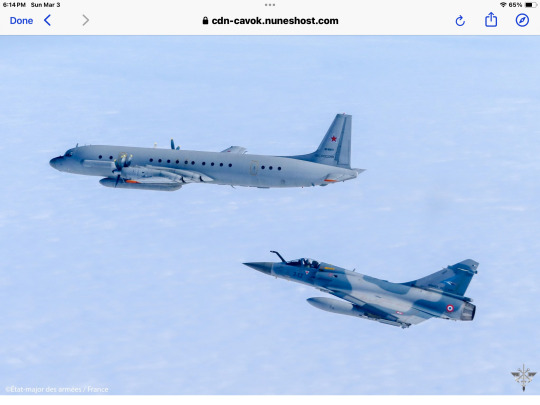
The French aircraft departed from Siauliai Air Base, Lithuania, during the NATO Air Policing mission.
In addition, it is noteworthy that these missions were intensified after Russia launched a large-scale invasion of Ukraine on February 24, 2022

The priority : #SecuringTheSkies over the Baltic States. @NATO protects ?? https://t.co/1ADkD6SrWC pic.twitter.com/oOe9Jp2Jor
— Armée française – Opérations militaires (@EtatMajorFR) March 1, 2024
In recent years, there have been several interceptions of aircraft that have not caused any serious incidents.
NATO said that air forces across Europe sent their jets more than 300 times to intercept Russian military aircraft approaching the Alliance's airspace only last year.
Tags: Armée de l'air - French Air Force/French Air ForceMilitary AviationInterceptionsMirage 2000NATO - Air Police MissionRFSAF - Russian Federation Aerospace Force/Russian Aerospace ForceSu-30SM
Sharing
tweet
Fernando Valduga
Fernando Valduga
Aviation photographer and pilot since 1992, he has participated in several events and air operations, such as Cruzex, AirVenture, Dayton Airshow and FIDAE. He has works published in specialized aviation magazines in Brazil and abroad. He uses Canon equipment during his photographic work in the world of aviation.
Related news
MILITARY
IMAGES: B-1B bombers complete the first deployment of the 2024 Bomber Task Force in Sweden
03/03/2024 - 11:30
DEMONSTRATION SQUADS
IMAGES: Thunderbirds and Blue Angels complete another joint training
03/03/2024 - 10:18
MILITARY
Confirmed Russian leak of secret war negotiation between the German armed forces and Ukraine
03/03/2024 - 09:52
MILITARY
India's HAL will manufacture MiG-29 jet engines with Russian technology
02/03/2024 - 19:16
MILITARY
Airbus A340 VIP that was from the German government is sold and already has a final destination
02/03/2024 - 15:29
MILITARY
Turkish Ministry of Defense receives letter of offer and acceptance for U.S. F-16 fighters
02/03/2024 - 12:41
11 notes
·
View notes
Text
The franc CFA (originally denoting Colonies françaises d’Afrique) is the official currency of Senegal and most other former French colonies in Africa, from before national independence through the present-day. This monetary system and its history are the subjects of a new book by Fanny Pigeaud and Ndongo Samba Sylla, Africa’s Last Colonial Currency (2021), translated by Thomas Fazi from a 2018 French edition. The book brings to the attention of Anglophone readers the peculiar institutions through which the French Republic continues to exercise colonial rule over nominally independent African states. France’s recent “counterterrorism” operations across the Sahel region (supported and rivaled in scope by the United States’ Africa Command, AFRICOM) represent only one phase in what the Black Alliance for Peace (2020) has called France’s “active and aggressive military presence in Africa for years.” Aggression has often had monetary motivations, and control has often exceeded aggression. One of Pigeaud and Sylla’s commitments and achievements is to show how “French ‘soft’ monetary power is inseparable from its ‘hard’ military power” (2021: 99). In their telling, the CFA franc has for decades been France’s secret weapon in “Françafrique,” the zone in Africa where France, its representatives, and its monetary system have never really left. [...]
---
The franc CFA was born in Paris on the 25th of December, 1945 [...]. The embattled empire was compelled to “loosen its grip” in Africa [...]. Consequently, argue Pigeaud and Sylla, the creation of the CFA franc was “actually designed to allow France to regain control of its colonies” (13). What Minister Pleven called generosity might better be called a swindle. [...] French goods-for-export, now priced in a devalued currency (made cheaper), would find easy markets in the colonies [...]. African goods - especially important raw materials, from uranium to cocoa, priced too expensively for domestic consumption [...] -- would find buyers more exclusively in France [...]. In effect, the new CFA monetary policies re-consolidated France’s imperial economy even as the monopoly regime of the colonial pact could be formally retired in recognition of demands for change from colonial subjects. [...] [T]he egalitarian parlance of community and cooperation modernized French colonial authority, making it more invisible rather than marking its end. [...]
---
Most importantly, France has held up a guarantee of unlimited convertibility between CFA francs and French currency [...]. CFA francs can only ever be converted into France’s currency [...] before being exchanged for other currencies [...]. In 1994, in conjunction with the International Monetary Fund and against the wishes of most African leaders, French authorities adjusted the franc zone exchange rate for the first time, devaluing the CFA franc by half. This blanket devaluation was the shock through which structural adjustment was forced upon Françafrique [...]. And the devaluation proved, to Pigeaud and Sylla, that France’s “‘guarantee of unlimited convertibility’ was an intellectual and political fraud” (74). Nevertheless, French authorities have continually held up - that is, brandished and exploited - this guarantee, without honoring it. [...] Pigeaud and Sylla do not mince words: “France uses its presumed role of ‘guarantor’ as a pretext and as a tool to blackmail its former colonies in order to keep them in its orbit, both economically and politically” (38). [...] In that respect, the CFA franc system has ensured [...] the stabilization of raw material exportation and goods importation, hierarchy and indirect rule, [...] accumulation and mass impoverishment, in short, the colonial order.
---
And all along, France has found - or compelled, coerced, and more-or-less directly put in place - useful political partners in Françafrique. [...]
The CFA franc has been central to the French strategy of decolonization-in-name-only. [...]
When and where demands for self-determination and changes to the monetary system (usually more minor than exit or abolition) have been strongest, from charismatic leaders or from below, they have been met with a retaliatory response from France and its African partners, frequently going so far as “destabilisation campaigns and even assassinations and coups d’état” (40). [...]
The first case is exemplary. In 1958, Ahmed Sékou Touré helped lead Guinea to independence [...]. Guinea was alone in voting down De Gaulle’s “Community” proposal [...], and [...] the new state established its own national currency and central bank by 1960. [...] [T]he decision was ultimately made to make Guinea a cautionary tale for the rest of Françafrique. French counter-intelligence officials plotted and hired out a series of mercenary attacks (“with the aim of creating a climate of insecurity and, if possible, overthrowing Sékou Touré,” recalled one such operative), in conjunction with “Operation Persil,” a scheme to flood the Guinean economy with false Guinean bills, successfully bringing about a devastating crash (43). [...] Yet, Sékou Touré was never removed, only ostracized - unlike Sylvanus Olympio in Togo or Modiba Keita in Mali, others whose (initially minor) desired changes to the CFA status quo were refused and rebuffed and who were then deposed in French-linked coups. [...]
So too the Cameroonian economist Joseph Tchundjang Pouemi, an even more overlooked figure since his death at the age of 47 in 1984. Pouemi’s experience working at the IMF [International Monetary Fund] in the 1970s led him to recognize that the leaders of the international monetary system would “repress any government that tries to offer their country a minimum of wellbeing” (60) and could do so especially easily in Françafrique because of the CFA franc.
---
Text by: Matt Schneider. “Africa’s Last Colonial Currency Review.” Society and Space [Book Reviews section of the online Magazine format]. 29 November 2021. [Bold emphasis and some paragraph breaks/contractions added by me.]
74 notes
·
View notes
Text
Le Maréchal Berthier : Pilier de l'Empire Napoléonien
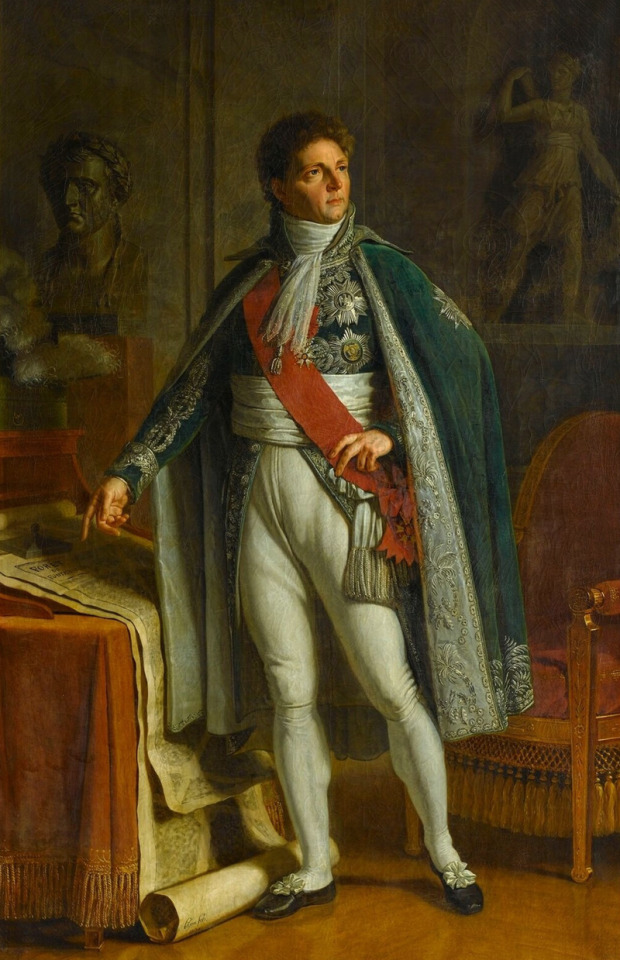
Né le 20 novembre 1753 à Versailles, Louis Alexandre Berthier est bien plus qu'un simple militaire. Sa destinée est intimement liée à celle de Napoléon Bonaparte, forgeant ainsi une alliance indéfectible au service de la France.
Dès son jeune âge, Berthier se distingue par son esprit vif et son dévouement à la patrie. Son ascension fulgurante au sein de l'armée française le mène rapidement à croiser la route du futur Empereur des Français.
Berthier participe sous les ordres de Bonaparte aux campagnes d'Italie puis d'Égypte et soutient le coup d'État du 18 Brumaire.
En tant que chef d'état-major de Napoléon, Berthier joue un rôle crucial dans la planification et l'exécution des campagnes militaires qui ont marqué l'histoire. Sa rigueur tactique et son génie organisationnel contribuent grandement aux victoires éclatantes de l'Empire, malgré son incapacité à diriger lui-même une armée.
La mort tragique de Berthier en 1815, suite à une chute mystérieuse d'une fenêtre de l'hôtel de son épouse à Bamberg, laisse un vide profond dans l'entourage de Napoléon.
Son décès précède en effet de quelques jours la bataille de Waterloo, où l'absence de cet excellent chef d'état-major se fait cruellement sentir pour l'Empereur qui dira de lui : "Nul autre n'eût pu le remplacer"
Berthier décide pourtant de suivre Louis XVIII lors de la Restauration, et adhére même au décret du Sénat qui exclut Napoléon du trône.
***
L'héritage du maréchal Berthier perdure à travers les pages de l'histoire. Son influence indélébile sur la stratégie militaire et l'administration de l'Empire demeure incontestée, faisant de lui l'un des piliers incontournables de l'épopée napoléonienne.
***
Marshal Berthier: Pillar of the Napoleonic Empire
Born on November 20, 1753, in Versailles, Louis Alexandre Berthier is much more than a mere military figure. His destiny is intimately intertwined with that of Napoleon Bonaparte, thus forging an unbreakable alliance in service to France.
From a young age, Berthier distinguished himself with his sharp intellect and dedication to his homeland. His rapid ascent within the French army quickly led him to cross paths with the future Emperor of the French.
Berthier participated under Bonaparte's command in the campaigns in Italy and Egypt, and supported the coup d'état of the 18th Brumaire.As Napoleon's chief of staff, Berthier played a crucial role in the planning and execution of military campaigns that have left an indelible mark on history. His tactical rigor and organizational genius greatly contributed to the Empire's resounding victories, despite his own inability to lead an army himself.
The tragic death of Berthier in 1815, following a mysterious fall from a window of his wife's hotel in Bamberg, left a profound void in Napoleon's inner circle.Indeed, his death preceded by a few days the Battle of Waterloo, where the absence of this excellent chief of staff was keenly felt by the Emperor who said of him: "No other could have replaced him."
However, Berthier decided to follow Louis XVIII during the Restoration, and even adhered to the Senate decree which excluded Napoleon from the throne.
***
The legacy of Marshal Berthier endures through the pages of history. His indelible influence on military strategy and the administration of the Empire remains unquestioned, making him one of the indispensable pillars of the Napoleonic epic.
#bonaparte#france#napoleon#napoleon bonaparte#guerre#soldats#Maréchal#Berthier#louis alexandre berthier#napoleonic wars#napoleonic era#napoleonic
20 notes
·
View notes
Text

Signum/Guatemala City - 23/07/2023
#lin delpierre#chantier#documentary photography#alliance française Guatemala City#Photography#landscape#urban landscape#guatemala city
2 notes
·
View notes
